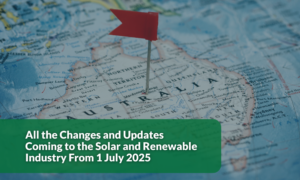Professor Ross Garnaut has released a discussion paper on an Australian emissions trading scheme model, stating that the introduction of an ETS signals the opportunity for profound, long-term structural change for Australia. The paper argues for the need to design the scheme on the basis that it will ultimately be part of a global agreement on greenhouse gas mitigation. “A global emissions trading scheme is clearly our end goal. I have looked at all the design issues through the lens of what would allow the most efficient and effective integration with international schemes,” said Garnaut. The paper suggests fixed and clear limits on emissions through the establishment of defined emissions ‘trajectories’, which would transparently map the pathway to emissions reduction targets/commitments. Permits would be regularly auctioned in line with the trajectory. “A long-term, firm trajectory for emissions reduction – which could only be tightened, not loosened, in line with emerging international commitments – would provide greater investor confidence and strengthen the credibility of the scheme,” he added.
Garnaut recommended four trajectories should be specified with the establishment of an ETS. The first up to 2012 would be based on Australia’s Kyoto commitments. The other three for the post-2012 period reflect increasing levels of ambition. Stationary energy, industrial processes, fugitives, transport and waste would be covered from the outset of the scheme with agriculture and forestry to be included as soon as practicable, the paper states. Garnaut said that ‘simplicity’ is the key to an effective ETS for Australia. The ETS discussion paper supports the auctioning of all permits, arguing that any increase in the price of goods or services, such as energy, will not be prevented through the free allocation of permits. The discussion paper supports transitional assistance to trade-exposed emissions intensive industries (such as steel and aluminium manufacturers) that are unable to pass on the cost of a carbon price.











































